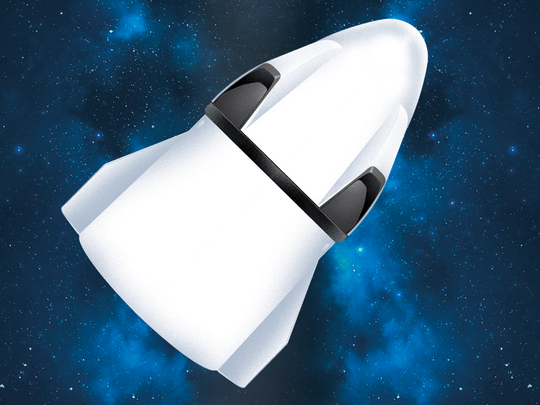
Maybe it’s because Robert Lepage is touring The Far Side of the Moon to the Adelaide Festival. Or that a new Star Trek is on TV. Or maybe it’s because I feel like the only person alive who really — really — liked Luc Besson’s Valerian, but space, fantasies of the final frontier, and the real voyages that human beings may yet dare to make into it are very much on my mind.
Last week saw a number of news items concerning our tentative outreach to the stars that, for all their frustrating revelations, might yet prick the aspiration for space missions back into the popular policy consciousness. One; an extraordinary piece by American astronaut, Mark Kelly, appeared in the New York Times pleading that the Trump administration desist on plans to defund the International Space Station.
The station began its operation in 1998, built with the collaboration of 16 nations. Manned missions began work in it it two years later. It’s been in operation ever since, growing module by module. It’s staffed with scientists from a coalition of American, Canadian, Russian, Chinese, Japanese and European space agencies who traverse its “American” half as freely as they do its “Russian” one.
The role of the station is research, and it’s the collaborative pursuit of knowledge in the interests of international, common humanity for which Kelly mounts a passionate argument. Kelly visited the station four times and rightly identifies it as one of the history’s most monumental feats of engineering. “What the International Space Station offers humans and and nations is remarkable”, he writes, “an important opportunity to collaborate on shared scientific goals, mostly free from politics and almost entirely free from the influences of our planet.”
Alas, this is not a view shared, appreciated or even understood by the Trump administration, or those far too much like them. The present Trump preoccupation is planning for a “grand military parade” — he’s saying “just like the one in France” but we all know just how much Trump likes Russia —, rolling tanks through Washington. This is a celebration not of knowledge, but of force, not of common humanity but garish nationalism, not of values for the future, but creaking, croaking symbolism of the past. And if the gold curtains of the Trump Oval Office redecoration are anything to go by, it won’t even look nice. A similar parade has, of course, obliged an equal-and-opposite reaction from North Korea, who are planning their own missile-drag down the main streets of Pyongyang to coincide with the Seoul Olympics.
Sigh. There are times I really hope that intelligent life from outer space is NOT observing us. Especially considering that, in pop culture terms, it’s not North Korea but super-rich genius and weirdo Elon Musk — funded by governments into realms of unheard of wealth — who satisfies far more of the comic-book tropes of a supervillain than the smiling Dear Leader of Asia’s pariah state.
The business magnate/engineer/inventor — now worth a cosy $20bn+ — fired a commercial rocket into orbit this week, in this week’s second item of noteworthy space news. The “Falcon Heavy” that Musk launched privately is currently the world’s most powerful in-use rocket, and it sailed into space carrying one of Musk’s own cars — a Tesla Roadster programmed to play David Bowie songs for all eternity.
Comparisons to Spider-Man’s Green Goblin are unfair when you consider just how much more Musk’s space project resembles the bad guy’s MO in the James Bond movie, Moonraker. Of course, I’m not saying that Musk is some kind of villain with visions of Mars colonies just because he’s rich, firing huge rockets into space and has visions of Mars colonies. I’m sure he’s very nice.
I just reckon that when it comes to the field of human endeavour, and unshackling ourselves from what the father of cosmonautics, Konstantin Tsiolkovsky called “the cradle of humanity” in which we cannot live forever, the initiative of space exploration to unseen heights, farthest reaches and worlds beyond our world should perhaps be one of states, communities and united peoples, rather than just some rich guy.
There are copious critiques of the Kennedy administration that readers can pore over at their leisure. Yet, for a moment, let’s comprehend the vision and excitement when the national leadership of a state embraced Nasa and the Apollo missions as the great ornamentations of a national endeavour. Consider that the world’s two biggest modern empires fought the most fascinating parts of the cold war in a theatre of technological rivalry and scientific ambition that benefited us all. And the culmination of their brilliance and ambition fostered new rapprochements, and exists even now in a floating scientific conversation that’s been held over our heads for 20 years.
Should governments, like Trump’s, abandon this field and allow these great human projects founder, the vacuum abhorred by nature will be filled in our orbit and maybe beyond by Musk, and, perhaps, by others of far less genial disposition.
I just hope the private villains in the sky give us peasants beneath them some means of a fighting chance. A good story — even one set in space — really is nothing if there’s no resistance.
— Guardian News & Media Ltd
Van Badham is a Guardian Australia columnist








